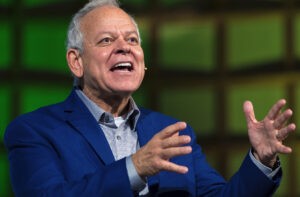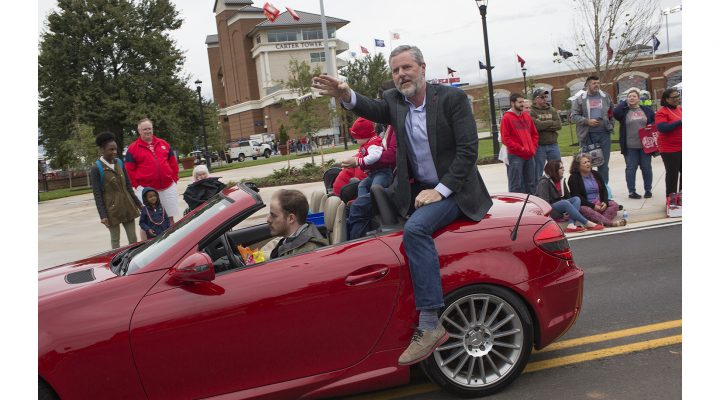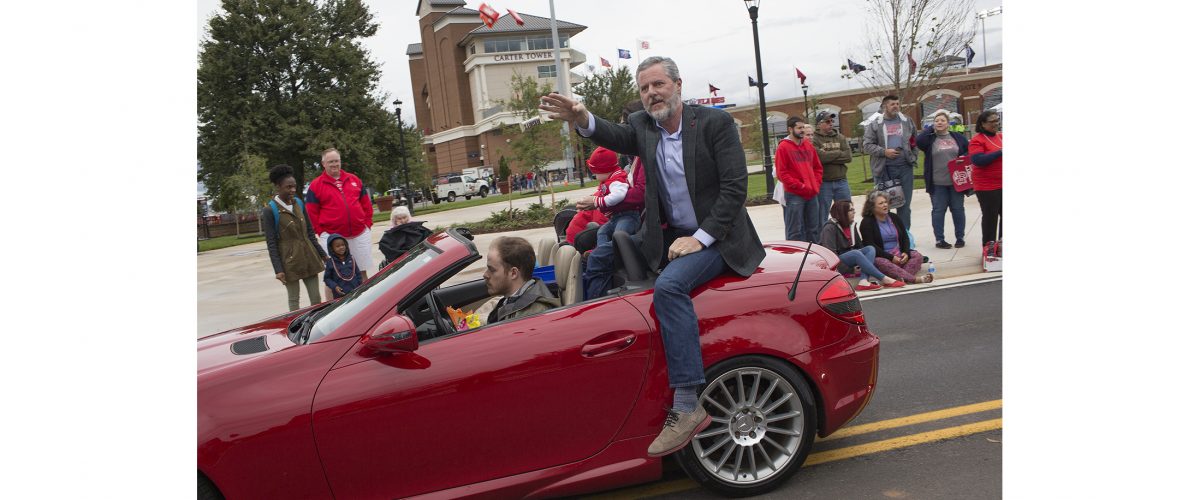Late last month, Liberty University and its former president, Jerry Falwell Jr., settled for an undisclosed amount to end a multi-year, sprawling set of multi-million dollar lawsuits brought by Falwell against the Lynchburg, Va.-based school.
For the world’s “largest evangelical university,” the settlement brings to close a deeply personal and increasingly nasty rift between the son of the school’s legendary founder and the college trustees who had denied his retirement benefits, banned him from the campus and engaged in reciprocal public accusations that included an alleged menage a trois with a Miami pool boy, decades of institutional mismanagement, and self-dealing by university leaders, including former SBC President Jerry Vines.

Benjamin Cole
Falwell, a director of the Virginia-based trust that owns trademark to his father’s name and image, had sought to limit the school’s use of the “Falwell brand” in fundraising activities, promotional materials and campus branding. After four years and a deluge of salacious rumors and negative press for both Falwell and Liberty University, the matter closes not with a bang but a whimper. Falwell got his money, and the school gets to use his father’s trademark.
For most Southern Baptist pastors, the notion of trademarking your name and image seems a tad silly. “For we preach not ourselves,” the Apostle Paul wrote to the church at Corinth, “but Christ Jesus the Lord.”
Most pastors we know never have trademarked their name, or copyrighted their sermons, or set up for-profit corporations, family trusts or side hustle nonprofits to ensure they and their children keep making money off their calling.
Again, to quote the Apostle Paul’s second epistle to the Corinthians, they “do not peddle the word of God for profit.” Rather, they “speak as those sent from God with sincerity” and not for filthy lucre.
“In one court filing, Hunt claims the exposure has cost him as much as $100 million in forfeited fees, honoraria, collection plate takings and associated damages.”
Nevertheless, Baptists have learned a lot in recent years about the ways their superstar preachers have set up complex corporate structures to facilitate their million-dollar ministries. Former SBC President Johnny Hunt now is engaged in a lawsuit of his own against the denomination that platformed and promoted him over the public airing of his “non-adulterous” fondling of another man’s wife. That lawsuit, which has produced reams of discovery material, shined a light on the ways Hunt set up his ministry to protect revenue streams from First Baptist Church of Woodstock, Ga., the SBC’s North American Mission Board, his children’s conference and tape ministries, and his lucrative speaking schedule and book deals. In one court filing, Hunt claims the exposure has cost him as much as $100 million in forfeited fees, honoraria, collection plate takings and associated damages.
That’s the kind of money only a pool room hustler could squeeze out of the little old ladies and hourly wage earners who are always the last to believe it when their favorite preacher gets caught with his hands in the panties of a woman half his age.

Johnny Hunt
To be sure, not every Baptist superstar like Falwell Jr. and Johnny Hunt are raking in the millions on their side hustles. But the news about Falwell’s settlement — and the carefully worded acknowledgements of “errors in judgment” and “mistakes” by both Falwell and Liberty University leaders — coupled with the latest court filings in the case of Hunt v. SBC got me to thinking about how Christian ministries, if not overseen by competent trustees who execute their fiduciary duties effectively, can find themselves led by charismatic preachers who are just fast enough to keep their side hustles shielded from exposure and the inevitable questions that would follow if they were forced to open the books.
A few years ago, I discovered that a Southern Baptist seminary president had established a for-profit investment holding company, registered the company on seminary-owned property, and was intermingling his personal investment portfolio with the seminary’s endowment funds to bolster their conjoined buying power.
To his credit, the president filed revisions in his corporate papers when confronted and the seminary withdrew from a handful of joint real estate ventures in Texas and Arizona. But when I flew to show the documents to the board chairman, who was himself also investing in some of the same real estate deals, he was at first shocked and then completely understanding of how the potential conflict might appear to faculty and staff whose salaries are substantially lower than the presidents. Not to mention the students who scrape by to pay the tuition and fees while working full-time jobs.
“As for the Hunt family, Southern Baptists still don’t know how much money NAMB was paying him and his family run ministries.”
Another SBC seminary president has for nearly two decades run a for-profit corporation on the campus, using campus staff to support its work while reporting to seminary trustees none of the revenues derived from the organization led solely by himself and his wife. Still another former SBC seminary president for years operated a questionable side hustle through which he directed tens of thousands of dollars in annual revenues. Soon after his termination, he and his wife renamed the organization and used seminary donor lists to solicit funds for the purported ministry. All of this without any trustee oversight or even a cursory review of the entities’ filings by seminary officers.
Which brings me back to the Falwell-Liberty settlement and the $100 million Hunt family empire. In both cases, the dangers arising from both the staggering sums and the complex business strategies that serve to enrich their owners and shield their family-run boards from independent oversight are compounded by the dynastic impulses.
For Falwell, the family wants to keep others — including the school founded by their patriarch — from cutting into their take. As for the Hunt family, Southern Baptists still don’t know how much money NAMB was paying him and his family run ministries, and there’s no indication NAMB trustees even know themselves.
The silver lining in this cloud of Baptist fleece may be that — for the most part — the offending and erstwhile Southern Baptist leaders who benefit from these opaque arrangements and lax trustee oversight do not, it seems, have the procreative dynastic potential that made the Falwell and Hunt lawsuits so sticky and controversial. When they are finally gone, it’s unlikely anyone is going to assert trademark claims to protect their legacies and keep their side hustles feeding the family to the third and fourth generations.
Benjamin S. Cole is a crisis communications consultant who lives in Plano, Texas, and tweets about SBC life under the pen name The Baptist Blogger.
Related articles:
‘Pastor Johnny’ is the head of a family empire that feeds off the SBC | Analysis by Maina Mwaura, Jon Bullock and Mark Wingfield
Liberty University and former President Falwell settle ‘all outstanding disputes’
At nearly 90, Charles Stanley makes half a million a year and his ministry is awash in cash


